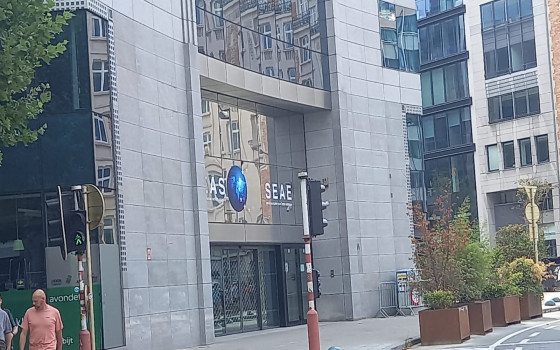
Brussels brings together experts from the world for a conference on beyond disinformation - and the manipulation of information by Russia and China

- Europe and Arabs
- Wednesday , 8 February 2023 17:43 PM GMT
Brussels: Europe and the Arabs
Under the auspices of Senior Coordinator for Foreign Policy Josep Borrell, the European External Action Service (EEAS) has brought together leading political representatives and experts from around the world to discuss the threats of foreign information manipulation and interference (FIMI). They participated in the conference "Beyond Disinformation: European Union Responses to the Threat of Manipulating Foreign Information", which was held in Brussels. According to a statement issued on Wednesday, of which we received a copy, the statement also stated, "Russia uses information manipulation and interference as a decisive tool in its war against Ukraine with unprecedented intensity." Borrell said In his keynote address to the participants: We have to work on several axes: including anticipating and deterring disinformation activities, and taking measures to support Ukraine.
During the conference, the European official presented his first threat report analyzing trends in foreign information manipulation and interference. The report uses best practice case methodology and identifies a variety of information manipulation and interference tactics implemented by Russia and China in the final months of 2022.
A key outcome of the conference is the consensus of leading experts from EU institutions, Member States, international partners such as NATO and the UN, civil society organizations, academia and journalists around the world that the only way forward to combat this threat is to continue working together, involving all levels of our societies and partners. all over the world.
In this context, the European Union launched a new initiative to take information exchange to the next level with the Information Exchange and Analysis Center (ISAC).
The conference featured a number of panel discussions, with a strong focus on a variety of responses to threat - from communications to disruptive measures. The Council of the European Union has already asked the Department of External Action and the Coordinator of Foreign and Security Policy to work on [combating] disinformation.
Borrell said, "The council began to find that there was a lot of toxic information spread around the world and asked the [European] External Action Service to respond to it. Then, we set to work, and today we present the result of our work. And we do that a few days before February 24th, The day that marked the start of Russia's brutal war against Ukraine [one year ago].
This history radically changed security in Europe and sent shock waves around the world.
It has affected all of us, here in Brussels, Johannesburg, South America, Southeast Asia, the Horn of Africa - everywhere.
First, the Ukrainians: tens of thousands of victims and millions of refugees in Europe. Rising energy and food prices affect living standards, as I said, everywhere.
I cannot travel without facing the same questions: When will this war stop? Because the consequences of this war are unbearable for us, in Africa, in the Middle East, everywhere.
I want to stress the importance of this fact, and thank you for your attention: Today, we're publishing our first-ever report on the threats of foreign information manipulation and interference.
It is the first report on threats of foreign information manipulation and interference. I hope the media will take an interest in that, the governments, my colleagues at the Commission, the foreign ministers, everybody. Please, this is a very important document. It shows clear trends in threats against our information space.
A key finding of the report is clear evidence that Russia has mobilized all of its tools to wage disinformation campaigns. Through its state-controlled outlets and in its diplomatic networks and proxies, the systematic distortion of reality to divert attention from its military conquest proves to be in vain.












No Comments Found